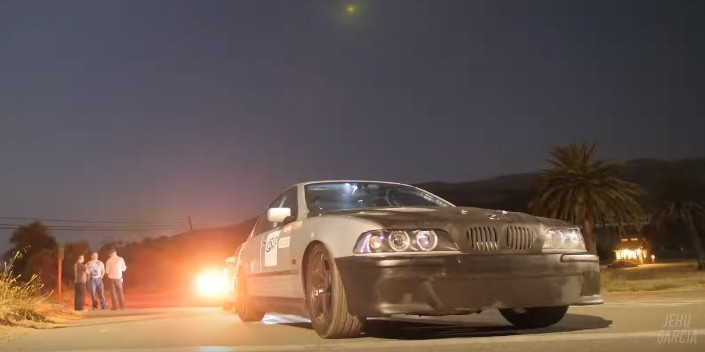This homemade £10,000 electric car can go twice as far as the most expensive Tesla
Modified BMW 5-Series covered 748 miles on a single charge.

Imagine undertaking a journey where you drive a Tesla Model S P100D, with a full battery, for over 300 miles until it runs out of electricity. Then continue your journey in a fully charged Nissan Leaf until it dies, followed by a Chevrolet Bolt, and then a VW eGolf, until finally you walk the final mile to your destination.
That is equal to a new unofficial world record set by a homemade electric car, which drove 748 miles through California across three days, at an average speed of 51mph.
The car, called The Phoenix and based on a 1997 BMW 5-Series, set the record earlier this month and was driven by its owner, Eric Lundgren. The journey was documented by YouTuber Jehu Garcia in a 15-minute video, embedded below.
The car reportedly cost less than $14,000 (£10,700) to build and 90% of it is recycled. Together with its electric motor and massive battery pack, the car was built by Lundgren to prove how recycling, especially of electronics, is a solution to the US's waste problem.
Lundgren spent just 35 days modifying the BMW, removing its internal combustion engine and replacing it with an electric motor. The back seats were also removed to make way for battery packs.
The recycled batteries came from laptops and electric cars which were previously considered to be no longer useable. But after analysing the battery packs, Lundgren found that most of the cells were still working correctly.
Speaking to InsideEVs after setting a previous record, he said: "What we found was, when you open up the pack, 80% of the actual batteries are perfectly working. They're perfect. The problem is that once over 20% degradation occurs in the pack, in America we say it's trash. We aggregated all these batteries and made this giant battery pack."
A pioneer of 'hybrid recycling', Lundgren works with companies like Nintendo, Motorola, Panasonic, Dell and Best Buy to promote the re-using of old products and created America's largest hybrid recycling plant, called ITAP.
Hybrid recycling is where products are broken down into individual components, which are then reused in their current state, rather than traditional recycling which strips products back to their raw materials, which are then used to create something else.
© Copyright IBTimes 2025. All rights reserved.






















